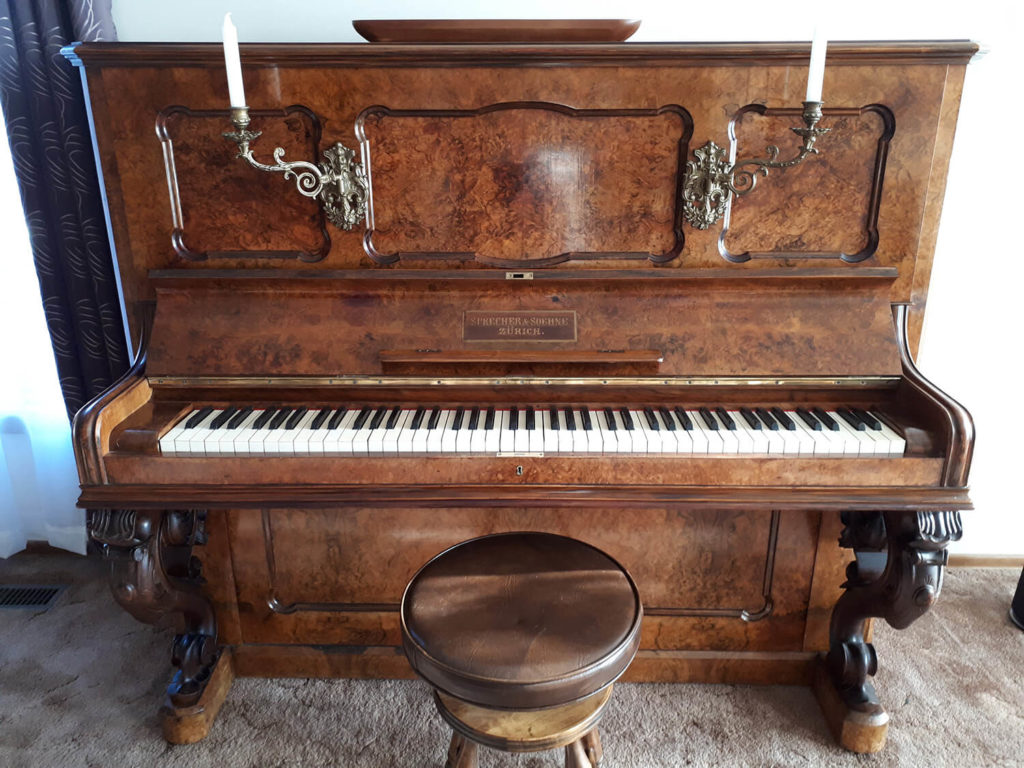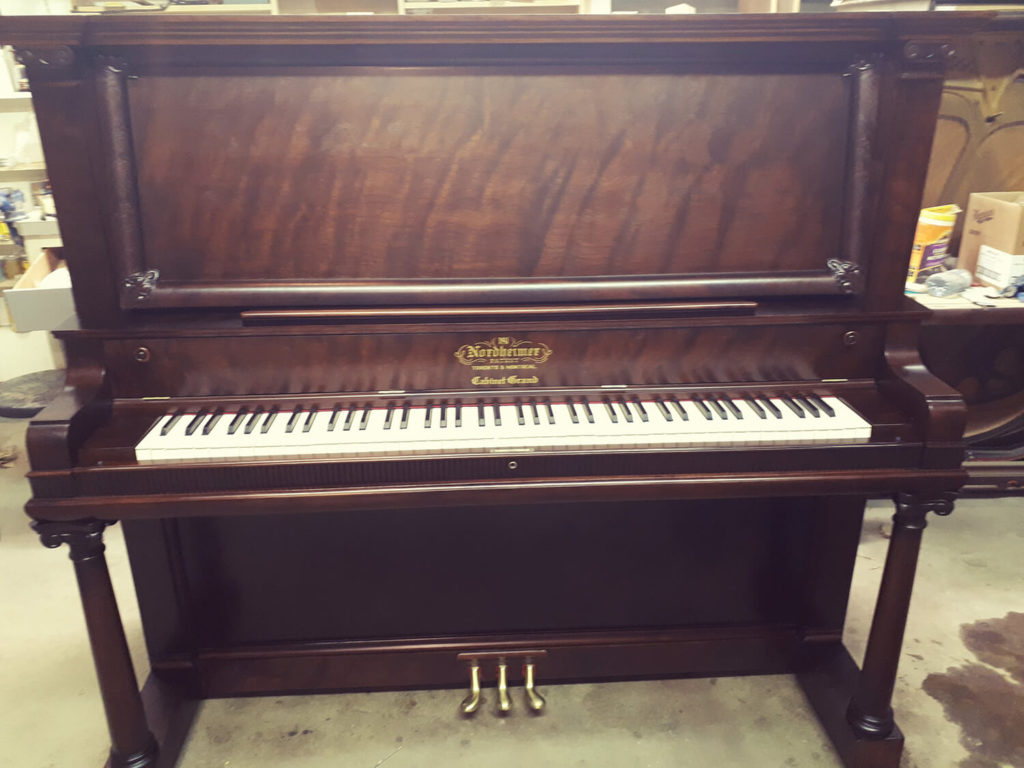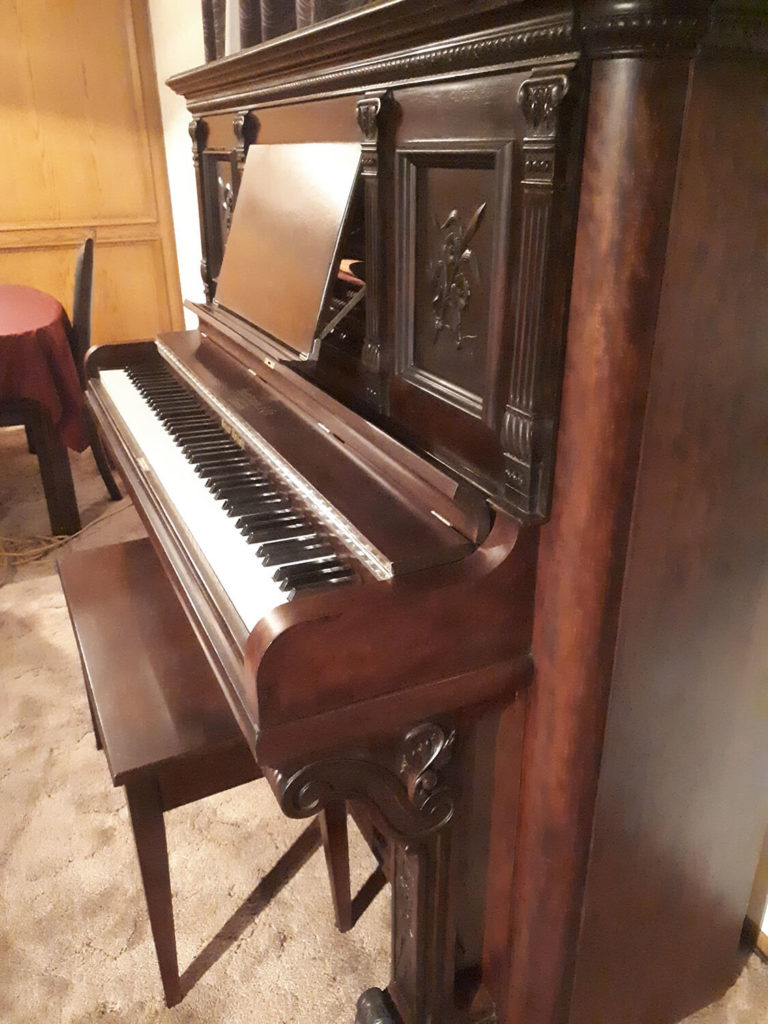Piano Tuning
The approximate 220 strings on your piano exert about 40000 pounds of tension on the plate and frame, and about 600 pounds of down bearing on the bridges and soundboard. Seasonal changes in the humidity, as well as the normal, continual decrease of static tension, cause all pianos to go out of tune. Depending on where you live, the amount of humidity change from season to season, the quality and condition of your piano and how much the piano is played, your piano could need tuning two to four times yearly. During each service call Plum will check and tighten the pinblock bolts (and rim bolts in grands), check and adjust the pedals, check and tighten the bench bolts, and inspect your piano for repairs and adjustments that might be needed or recommended.
Voicing is also called “tone regulating” and is really the final part of regulating the piano. Although it involves many aspects, voicing includes adjusting the piano’s hammers to achieve a full, smooth and pleasing tone in the piano.
Piano Voicing
Piano Regulation
As a mechanical device, your piano action needs regular adjustment, called “regulating”. Parts swell and shrink as the humidity changes, wear out with use, or fatigue with age. Dirt and grit prematurely wear out felt, leather and wood action parts. Regulating and cleaning prolongs the life of your piano. Proper regulation is necessary for the best performance of your piano. A well regulated piano is a joy to play, because it is more even and responsive to the demands of the pianist. While new pianos usually arrive fairly well regulated, the felt and leather parts “break in” and minor regulating is usually needed, even during the first or second year of use.
Piano Repairs
As a mechanical device, your piano action needs regular adjustment, called “regulating”. Parts swell and shrink as the humidity changes, wear out with use, or fatigue with age. Dirt and grit prematurely wear out felt, leather and wood action parts. Regulating and cleaning prolongs the life of your piano. Proper regulation is necessary for the best performance of your piano. A well regulated piano is a joy to play, because it is more even and responsive to the demands of the pianist. While new pianos usually arrive fairly well regulated, the felt and leather parts “break in” and minor regulating is usually needed, even during the first or second year of use.
Pre-Purchase Inspections & Estimates
When considering buying a used piano, it’s very important to get the piano inspected by an independent piano technician. That’s the only way you can avoid hidden problems like losing tuning pins, brakes in the pin block or soundboard, that could make the instrument useless, impossible to tune or expensive to repair. Buying a piano is a good investment. It is very essential that the piano is really worth your money. By the inspection conducted by a reputable piano technician, you will have a peace of mind that you will get your money’s worth.
After inspecting your piano Plamen will be happy to recommend the service needed to put it in the condition that meets your needs, wants and desires.
Humidity Control
Pianos are designed to be at 42% relative humidity (R.H.). A Dampp-Chaser Humidity Control System installed in your piano keeps your piano at 42%, plus or minus 5% R.H., year around. Because the thousands of wood and felt parts remain more stable, your tuning and regulation will remain more stable as well. Proper humidity control prevents rust on the strings and sticking keys and actions (from too much humidity), and loose keys and action parts, loose tuning pins, split pinblocks and cracks in the soundboard (too little humidity).






